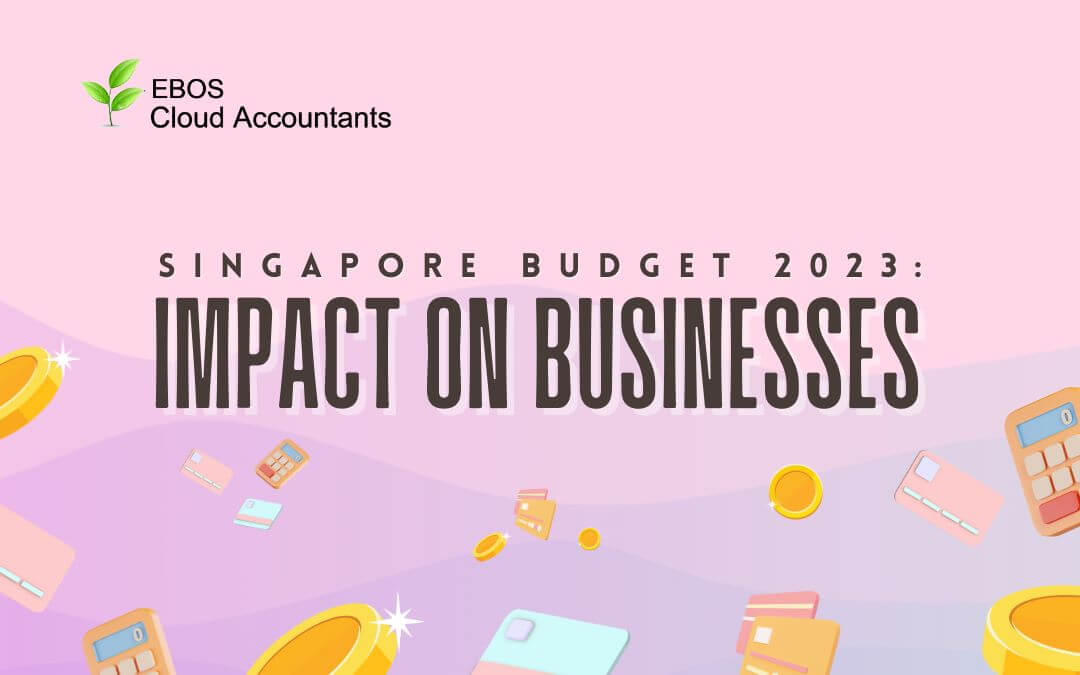Mr. Lawrence Wong, Deputy Prime Minister and Minister of Finance, gave the 2023 Budget Statement to the House of Representatives on February 14, 2023,. With support for young families and sustained aid for the more vulnerable groups to cope with the rising cost of living, the budget is primarily focused on developing capacities and capturing new opportunities in a new era of global development.
The total budget deficit for 2023 is projected to be S$400 million (US$299 million), or 0.1 percent of GDP, with government spending set to reach S$104.2 billion (US$78.1 billion). The economy is expected to grow by between 0.5 and 2.5 percent but at a slower rate. Global trade, however, will be significantly impacted by external factors including the protracted Russia-Ukraine conflict and the weakening economies of the US and Europe. As a result, Singapore’s inflation is anticipated to continue high, at least into the first half of 2023.
Singapore businesses are given support in Budget 2023 as they adjust to life after COVID-19, battle high inflation, and confront a slowing economy. They, among others, include tax breaks for innovation and R&D (research and development).
Enterprise Innovation Scheme
The government unveiled the Enterprise Innovation Scheme (EIS) in Budget 2023 to encourage companies to engage in R&D and innovation. EIS improves existing tax policies and adds new ones for companies that qualify.
As listed below, there are five qualifying activities.
1. Qualifying R&D undertaken in Singapore
Businesses engaged in R&D in Singapore currently receive a 100% tax deduction for all allowable costs related to R&D initiatives. For such initiatives, there is an additional 150 percent tax deduction for employee expenditures and consumables.
The government currently provides a 400 percent tax exemption for the first S$400,000 (US$298,000) of consumables and staff expenses incurred on eligible R&D projects carried out in Singapore under Budget 2023. From the year of assessment (YA) 2024 through the year of assessment (YA) 2028, the incentive is valid.
2. Enhanced tax deductions for qualifying intellectual property registration costs
Currently, businesses can deduct 200 percent of the first S$100,000 (US$74,600) of eligible IP registration expenses from their taxes (patents, designs, trademarks, etc.).This incentive has been improved by Budget 2023 to a 400% tax discount for the first S$400,000 (US$298,000) of eligible IP registration fees, for each of the YAs from 2024 to 2028.
3. Acquisition and licensing of IP rights
Companies can benefit from a 100% write-down allowance on capital expenditures on qualifying IP rights under the current tax policies for IP rights. Also, the first S$100,000 (US$74,600) of eligible expenditures for IP rights licensing qualified for a 200 percent tax benefit.
Additionally, this incentive has been improved in Budget 2023 to 400 percent tax exemptions or deductions for the first S$400,000 (US$298,000) of qualifying expenditures on the purchase and licensing of qualifying intellectual property rights. This applies to the years 2024 to 2028.
4. Tax deductions for training expenditure
A 400 percent tax benefit is available for the first S$400,000 (US$298,000) of qualifying training expenses for courses that have been authorized by SkillsFuture Singapore. This is now better than a full tax deduction.
5. Tax deductions for innovation projects carried out by polytechnics and other qualified partners
A 400 percent tax deduction program for up to S$50,000 (US$37,300) of qualifying expenditure of qualified innovation projects has been introduced in Budget 2023 to encourage businesses to work on innovative projects with regional polytechnics, the Institute of Technical Innovation, or other qualified partners. This applies to the years 2024 to 2028.
Enhanced support for businesses
The present improvements provided by Enterprise Singapore under its Enterprise Funding Program will be extended by the government. A statutory board within the Ministry of Trade and Industry of Singapore, Enterprise Singapore is in charge of assisting regional SME development and internationalization.
Extension of the enterprise financing scheme – trade loan
From April 1, 2023, through March 31, 2024, the enterprise financing scheme – trade loan (EFS-TL) will be in effect.
Enterprises can receive trade finance from the EFS-TL up to S$10 million ($7.3 million USD) per borrower. The maximum loan repayment length is one year, with the government bearing 70% of the risk.
Extension of the enterprise financing scheme project loans
Project loans under the enterprise financing scheme (EFS-PL) will now be available until March 31, 2024. The program finances specific international projects.
The following loan types are acceptable:
- Land, structures, and factories, including acquisitions, renovations, and construction;
- Loans for working capital;
- Equipment, machinery, and other fixed assets; and
For international projects, up to S$50 million (US$36.9 million) and S$30 million (US$22.1 million) are available per borrower, respectively.
Moreover, there is up to S$50 million (US$36.9 million) and S$30 million (US$22.1 million) available per borrower group for domestic and international projects, respectively.
The government’s risk share is 50% and 70% for young businesses, which are those that have been formed within the last five years and have more than 50% privately held equity. For fixed asset loans, the maximum payback term is 15 years, while for working capital loans and guarantees, the maximum repayment term is 5 years.
Extension of the enterprise financing scheme – working capital loan
The working capital loan under the enterprise financing scheme has been extended from April 1, 2023, to March 31, 2024, and now offers a loan for operating capital of S$500,000 (US$373,000).
Enhanced support measures for workers
Employers who hire older workers, low-wage workers, individuals with impairments, and ex-offenders would receive further support under the Singapore Budget 2023.
- Top-Up for Progressive Wage Credit Scheme: For lower-paid residents making a gross monthly salary of up to S$2,500, the PWCS co-finances pay rises by up to 75%.
- Senior Employment Credit (SEC) Extension: The SEC is a pay offset designed to promote the employment of Singaporean workers 55 years of age and older.
- Part-time Re-employment Grant Extension: This program offers financial assistance to employers who offer part-time re-employment and other flexible work arrangements for senior employees.
- Extension of Enabling Employment Credit (EEC): Improvement of the EEC to cover a larger percentage of earnings, supporting the employment of Singaporean PWDs by offering wage offsets to employers.
- Positive Employment Credit: A new program that pays employers temporary wage offsets in an effort to entice them to hire ex-offenders.
Conclusion:
By improving Singapore’s budgetary condition and bolstering our social contract at the same time, the measures included in the current Budget provide the groundwork for a seamless transition to a post-COVID-19 world. Visit www.ebos-sg.com or www.intellinz.com today to check out grants you can take advantage of to soar your business in 2023.







